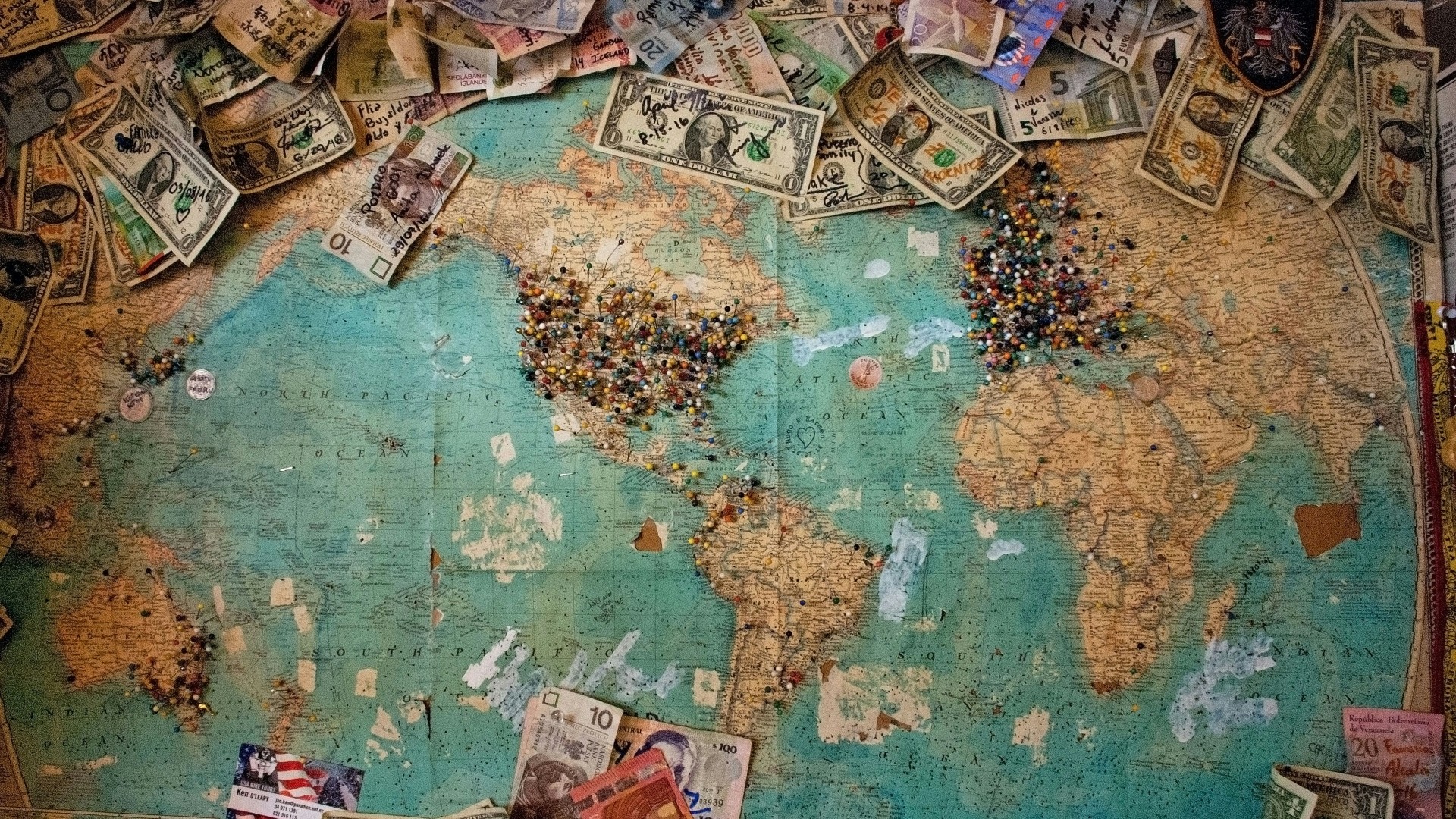What Would the World Look Like Without the Dollar?
Photo by Christine Roy on Unsplash
The collapse of the dollar has long been a libertarian fever dream, driven by hallucinations of how markets don’t and never have worked, but the future is a pretty wild place, and things are changing very quickly. In just a month, Trump has taken the Atlanta Fed’s GDPNow projection for the first quarter from a little above three percent to just under negative three percent. On Inauguration Day, Trump was taking over a fragile, but growing economy with the lowest unemployment rate in 50 years. Come April, Elon Musk’s destruction of the federal government, America’s largest employer, means that job report will be catastrophic and will ruin the positive vibes around low unemployment. In the blink of an eye, we have watched the shadow of a sweeping financial crisis balloon in front of us, and that’s before you get to this stupid fucking trade war that sent the markets sprinting towards the gates of hell as Trump announced it yesterday.
One of the assets you wouldn’t expect to fall on news of Trump’s tariffs is the dollar itself. As Barrons noted today, the dollar index rose ten percent from September in anticipation of these tariffs (the same moment the bond market diverged from the Fed Funds Rate because of Trump). But since the week before his inauguration, the dollar has declined about four percent from its high and has fallen along with everything else after Trump’s Mexico and Canada tariffs went into force. This suggests that the market believes the collapse in growth anticipated by the Atlanta Fed could be sustained in the face of this trade war as Treasury yields continue to fall, further hampering the value of the dollar by projecting a United States defined by slowing economic growth in the future.
The dollar is the core of America’s global power. The whole planet prices everything in it, and agreeing with the oil barons in the Middle East in the 1970s to price the globe’s favored commodity in dollars expanded American power across the world unlike anything we have seen since at least the ages of Rome and Han.
But as Barrons reported, the elemental basis of our global economic dominance is now threatened by Trump’s chaotic authoritarianism. “We do not write this lightly. But the speed and scale of global shifts is so rapid that [the dollar losing its safe-haven status] needs to be acknowledged as a possibility,” wrote Global Head of FX Research George Saravelos in a note sent to Deutsche Bank clients today. “Our dollar views remain neutral for now but the key message is that we are becoming a lot more open-minded about two-sided risks to the dollar.”
It is difficult to comprehend what a non-dollarized world would look like, because everyone who grew up in the post-World War II order knows no other one, but given that America has reached a point of no return with the collapse in global trust of our leadership, we should start thinking about what that might look like (lower living standards for Americans, for one). One of our many economic superpowers is the world’s supreme trust in our economic numbers, and that is officially gone in the age of Trump and Musk. We’re just like China and Russia now. The numbers are fake. They exist to protect the regime.
Update: Commerce Secretary Lutnick, who recently hinted at plans to manipulate GDP stats, has also now officially killed the Federal Economic Statistics Advisory Committee.
Committee members were notified today that committee purpose has been “fulfilled,” & comm terminated effective Feb. 28, 2025— Catherine Rampell (@crampell.bsky.social) March 4, 2025 at 11:08 AM
There are very few alternatives that could try to replace the gargantuan scale of the dollar, but they all have one thing in common: they irrevocably shift power away from the United States, benefiting China and Russia in any outcome.
The Euro
The reason the United States is so easily accepted as the underwriter for all business on the planet is because open markets are more trusted than the closed markets controlled by the Chinese and Russian and Muskian governments pumping out economic numbers that no one believes. Despite the ungovernable and underwhelming currency it has been since its launch, the Euro still has that trusted Western markets shine on it. Western dollar defectors would be likeliest to use the Euro as the denominator in their safe-haven calculations, at least to start this fundamental monetary shift away from the United States.
-

-

-

-

-

-

-

-

-

-

-

-

-

-

-

-

-

-

-

-

-

-

-

-

-

-

-

-

-

-

-

-

-

-

-

-

-

-

-

-

-

-

-

-

-

-

-

-

-

-

-

-

-

-

-

-

-

-

-

-

-

-

-

-

-

-

-

-

-

-

-

-

-

-

-

-

-

-

-

-

-

-

-

-

-

-

-

-

-

-

-

-

-

-

-

-

-

-

-

-

-

-

-

-

-

-

-

-












































































































